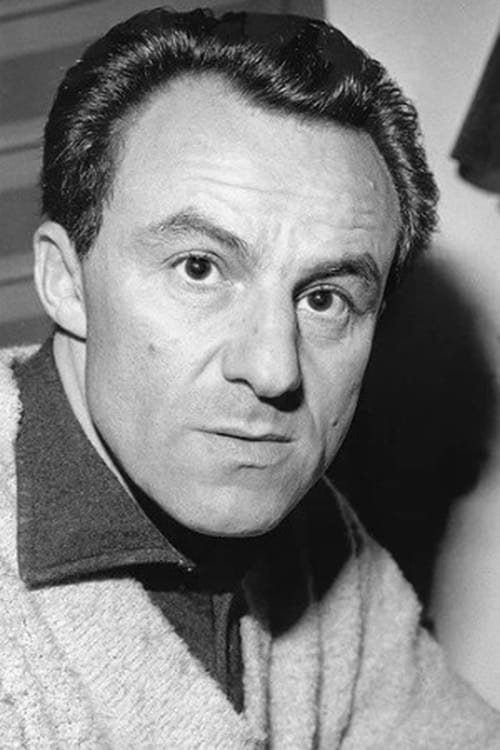Andrzej Munk
출생 : 1921-10-16, Kraków, małopolskie, Polska
사망 : 1961-09-20
약력
From Wikipedia
Andrzej Munk (16 October 1921 – 20 September 1961) was a Polish film director, screen writer and documentalist. He was one of the most influential artists of the post-Stalinist period in the People's Republic of Poland. His feature films Man on the Tracks (Człowiek na torze, 1956), Eroica (Heroism, 1958), Bad Luck (Zezowate szczęście, 1960), and Passenger (Pasażerka 1963), are considered classics of the Polish Film School developed in mid-1950s. He died as a result of a car crash in Kompina in a head-on collision with a truck.
He was 40.
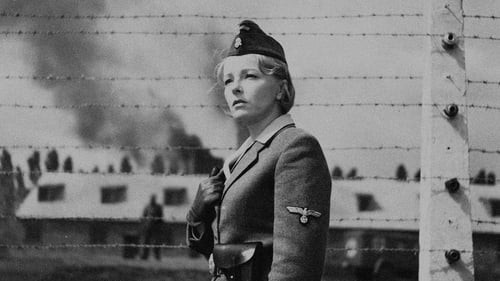
Screenplay
리자(알렉산드라 슬라스카 분)는 아우슈비츠에서 SS감독관으로 있었던 자신의 과거에 대해 두 가지 다른 회상을 들려준다. 첫 번째 회상은 전쟁이 끝난 수 독일로 돌아가는 화려한 쾌속선에서 남편에게 들려주는 불온한 부분을 삭제한 버전이다. 그녀는 서로 사랑하는 사이인 남녀 수감자가 만날 수 있게 호의를 베풀었지만 그 이상 그들의 운명에 관여할 힘은 없었다고 말한다. 리자가 혼자 회상하는 두 번째 버전에서는 그녀의 동기가 좀더 복잡하고 모호하며 여자 수감자에 대한 집착적 관계가 드러난다.

Director
리자(알렉산드라 슬라스카 분)는 아우슈비츠에서 SS감독관으로 있었던 자신의 과거에 대해 두 가지 다른 회상을 들려준다. 첫 번째 회상은 전쟁이 끝난 수 독일로 돌아가는 화려한 쾌속선에서 남편에게 들려주는 불온한 부분을 삭제한 버전이다. 그녀는 서로 사랑하는 사이인 남녀 수감자가 만날 수 있게 호의를 베풀었지만 그 이상 그들의 운명에 관여할 힘은 없었다고 말한다. 리자가 혼자 회상하는 두 번째 버전에서는 그녀의 동기가 좀더 복잡하고 모호하며 여자 수감자에 대한 집착적 관계가 드러난다.

Director
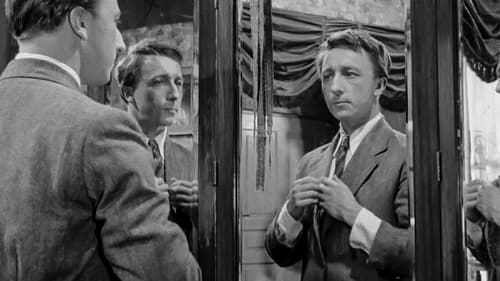
Director
To convince the prison warden against releasing him, a middle-aged Polish man recounts his life, one he considers to have been characterized by exceptionally bad luck.

Director

Writer
Little heroine, a music school student, wanders through the backstreets of Warsaw's Old Town and discovers a world to which others have no access. It is a world of extraordinariness and beauty of sounds. And these are sounds that are the most important thing for the girl – the hubbub of children, the sounds of the street, the puffing of a tractor, the tuning of an organ, the sweeping of a broom and the sound of jets flying overhead.

Director
Little heroine, a music school student, wanders through the backstreets of Warsaw's Old Town and discovers a world to which others have no access. It is a world of extraordinariness and beauty of sounds. And these are sounds that are the most important thing for the girl – the hubbub of children, the sounds of the street, the puffing of a tractor, the tuning of an organ, the sweeping of a broom and the sound of jets flying overhead.

Director
Originally, Munk intended Eroica to be a triptych with Con bravura being the first part, but he ultimately gave up on this film, deeming it weaker artistically than the two counterparts. Con bravura is about conspiracy conflating the paths of a rather unconventional nun and an intrigued young man – each of them bears secrets and the encounter could incite a flaming romance, though one suffocated by war.Munk set the film in the mountain capital of Zakopane and its vicinity, allowing breathtaking views from a cable car and using his experiences of the Nazi occupation in the area to add gritty reality. The director plays a cameo as a priest with several of his industry friends also making appearances.
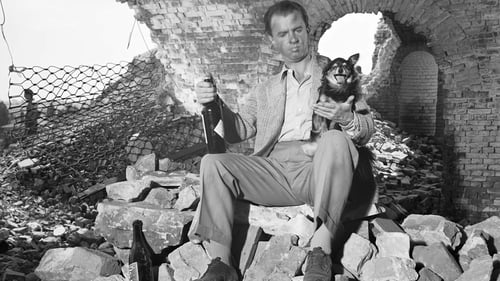
Director
Tells two tales set during WWII: A seemingly feckless and selfish finally takes up arms in the national struggle against the Nazis. Set in a POW camp, Polish inmates cling to their hopes for an eventual escape, encouraged by the legendary escape of one of their own.
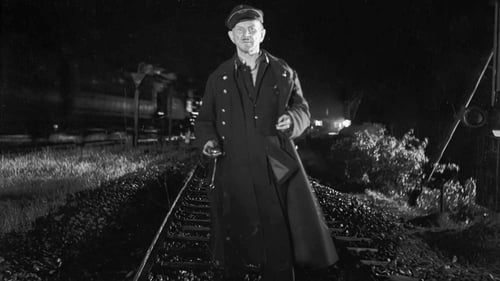
Writer
승객들을 태운 기차가 한밤중에 빠르게 달리고 있다. 그런데 선로 위에 한 남자가 서 있는 걸 발견하고 급하게 멈추려 하지만 결국 남자는 열차에 치어 사망하고 만다. 이 사고를 조사하던 관료들은 죽은 남자가 열차 운행을 고의로 방해하려 했다고 의심한다. 과연 이 사건 뒤에 숨은 진실은 무엇일까? 남자는 정말 사보타주를 계획했던 것일까?

Director
승객들을 태운 기차가 한밤중에 빠르게 달리고 있다. 그런데 선로 위에 한 남자가 서 있는 걸 발견하고 급하게 멈추려 하지만 결국 남자는 열차에 치어 사망하고 만다. 이 사고를 조사하던 관료들은 죽은 남자가 열차 운행을 고의로 방해하려 했다고 의심한다. 과연 이 사건 뒤에 숨은 진실은 무엇일까? 남자는 정말 사보타주를 계획했던 것일까?
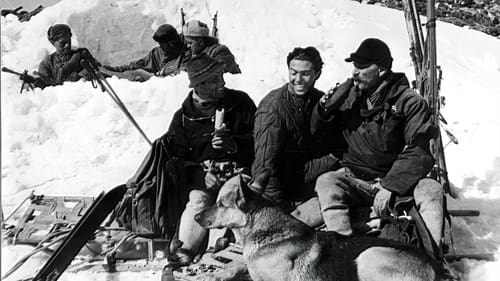
Writer
The final film produced by Warsaw’s Documentary Film Studio is an epic re-enactment of a treacherous mission by the Voluntary Tatra Mountain Rescue Service to aid colleagues stranded behind enemy lines at the close of World War II (several real participants feature in the film). Based on a short story about the rescue by Adam Liberak, Munk’s final “documentary” is also arguably his first major exercise in the craft of narrative filmmaking.

Director
The final film produced by Warsaw’s Documentary Film Studio is an epic re-enactment of a treacherous mission by the Voluntary Tatra Mountain Rescue Service to aid colleagues stranded behind enemy lines at the close of World War II (several real participants feature in the film). Based on a short story about the rescue by Adam Liberak, Munk’s final “documentary” is also arguably his first major exercise in the craft of narrative filmmaking.

Director
Short propaganda film. Warsaw's post-war reconstruction as seen through the eyes of the passengers of a red bus.

Director
A fictionalized documentary in two parts. A mining company's management attempts to fulfill a production quota by mining from an old, unused shaft.

Director
A documentary about the hard work of railwaymen transporting coke from Tarnowskie Góry to Szczecin Iron works. They’re doing their best to arrive on time.

Writer
A film meant to show what people were told to believe about the wonderful lives that Polish peasants led in post-war Poland.

Director
A recording of the performance of the symphonic poem entitled Fairy Tale by Stanislaw Moniuszko at the ‘Ursus’ Factory in Warsaw. It took place in 1952 and was performed by the Warsaw Philharmonic Orchestra under the baton of Witold Rowecki.

Director
A film meant to show what people were told to believe about the wonderful lives that Polish peasants led in post-war Poland.

Cinematography
Modern work tools are created thanks to the development of science, as a result of the transfer of knowledge between generations. A review of the tradition of Polish science from the times of Nicolaus Copernicus to the establishment of the Polish Academy of Sciences. [35mm online]

Director
Modern work tools are created thanks to the development of science, as a result of the transfer of knowledge between generations. A review of the tradition of Polish science from the times of Nicolaus Copernicus to the establishment of the Polish Academy of Sciences. [35mm online]

Director
This documentary describes the process of building and the first days of the combine and the city of Nowa Huta. Andrzej Munk realizes the postulates of socialist realism decreed in Polish cinematography in 1949.

Director
In October 1949, when socialist realism was imposed on Polish artists, a presentation of the achievements of art schools took place in Poznań. The report of the event called ‘shows’ was made by students of the Film School in Łódź.

Self (archive footage)
Andrzej Munk was one of the leading directors in Polish cinema. Friends and collaborators share their memories about this stunning artist and his premature tragic death.
